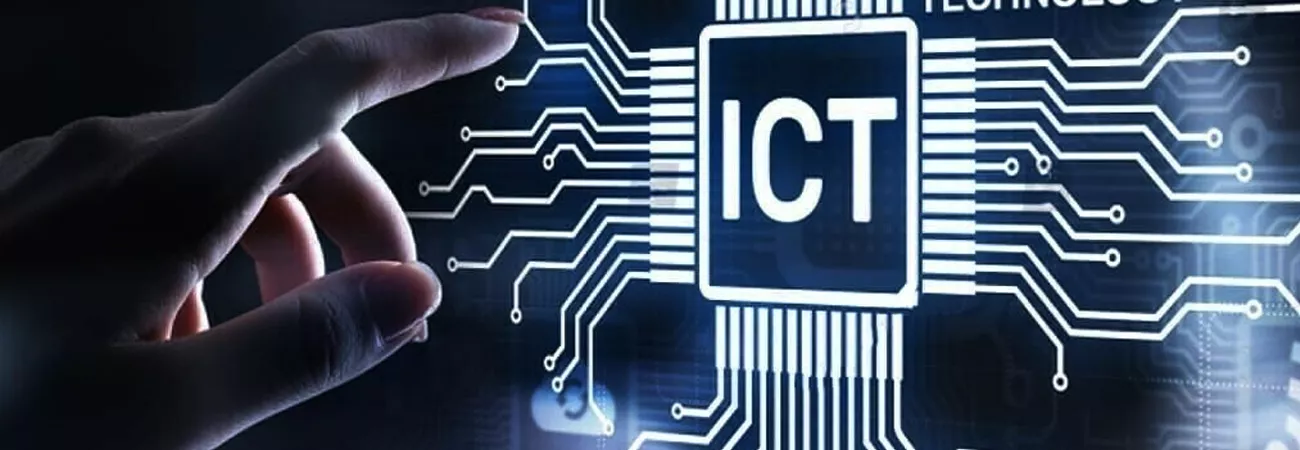i ECONOMY
Pakistan’s ICT exports could grow by 30% over the next few years as long as we provide well-trained human resources, infrastructure for ICT projects in universities, support industry in terms of tax incentives and take full advantage of ICT cooperation opportunities under the CPEC framework.This was stated by Prof. Dr. Waqar Mahmood, Director of Al-Khwarizmi Institute of Computer Science (KICS), University of Engineering and Technology (UET) in an interview with Gwadar Pro.
Pakistan’s telecommunication,computer and information services exports during the first 11 months of fiscal year 2021-2022 surged to $2.381 billion at a growth rate of 25.45 percent in comparison to $1.898 billion during the corresponding period of last fiscal year,according to Pakistan Bureau of Statistics.Prof. Dr. B.S. Chowdhry, Professor Emeritus of Faculty of Electrical,Electronics, & Computer Engineering, and Advisor of Mehran University of Engineering & Technology(MUET),Jamshoro,believes that the disruption caused by the COVID-19 pandemic created a unique opportunity for Pakistan’s ICT exports.
Government subsidies and Pakistan's overall labor cost advantage attract customers from all over the world.As per Pakistan Economic Survey 2021-2022, investment (FDI & local) in the telecom sector during July to February FY2022 crossed $930.1 million. During July-March FY2022,the telecom sector contributed Rs. 163.3 billion (estimated) to the national exchequer in terms of taxes, regulatory fees, initial and annual license fees, activation tax, and other taxes.
Good infrastructure and well-trained workforce are necessary for the development of ICT. Prof. Dr. Waqar explained that Pakistan has 44 million broadband subscribers and more than 100 million mobile users, which obviously shows that ordinary people have access to some ICT services. 25,000 + graduates enter the industry every year and 600,000 + individuals are employed in all aspects of the industry.“In addition to big cities, Pakistan also needs to look for opportunities in other far flung cities where youths can work as freelancers and provide other outsourced services.
They can participate in the export of ICT’s overall products once they are assisted by the government's cutting-edge services and tool training.” Prof. Dr. Waqar further said.Dr. Miftah Ismail, Minister for Finance and Revenue announced in the federal budget 2022-2023 speech that the government has allocated Rs 17 billion for imparting training in IT sector, providing youths with laptops, improving network and promoting IT export.Both experts agreed this encouraging move is in the right direction.
In conjunction with the development support provided by CPEC, Pakistan’s ICT industry will continue to grow at a steady pace.China and Pakistan have conducted extensive cooperation in various fields, including agriculture, transportation, education and health, and Pakistan’s ongoing ICT provides strong support for this.It is significant to enhance all-round cooperation between China and Pakistan in ICT and the digital economy. In 2007,UET became a partner of Southern University of Science and Technology for the program of UNESCO Higher Education Innovation Centre in Pakistan.
Many advances have been made within this cooperation framework,including smart classrooms, where online education has played an important role in the COVID-19 era. Prof. Dr. Waqar recommended setting up more digital transformation centers with collaboration between China and Pakistan.There is a need to encourage local IT companies to participate in CPEC for eventual entry into the Chinese market, Advisory Council on Information Technology (IT) and Digital Economy said recently. Prof. Dr. B.S. Chowdhry reaffirmed the necessity to involve Pakistani start-ups in CPEC.He added that venture capital in promising Pakistani tech companies is an important way to support the development of the ICT industry.
Credit:
Independent News Pakistan-INP








